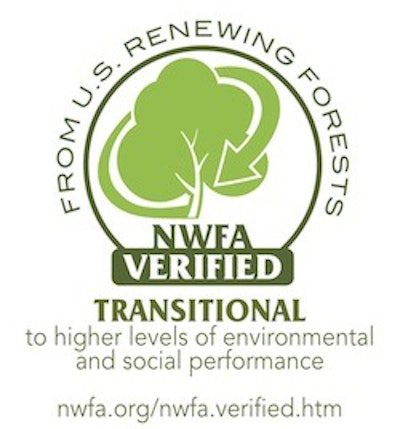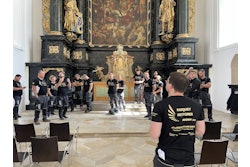
The NWFA has updated its Responsible Procurement Program (RPP), removing use of an off-product label that essentially deemed a manufacturer's products legally sourced. This change, along with a few others, was outlined during a webinar the association hosted on Wednesday.
 |
"In the early version of the RPP there was a 'legal' label, and in order to use that label … you had to undergo an audit to verify the legal origins of the material," Grant said. "A number of the companies involved in the early version of the RPP tried to exercise that requirement and, for various reasons, found it very difficult to do so."
Legal risk also factored into the decision.
"We also realized there was a certain degree of risk in the NWFA applying a 'legal' label to a product," Grant said. "With an audit just once a year, it might later prove that the product was, in fact, not legally harvested or traded. So at some point the risks outweigh the benefits."
 |
"FSC is itself a complex subject, and it is itself very much a moving target," Grant said in reference to FSC Controlled Wood. "It seemed to the people who designed the RPP … that attaching our program to something where the goalposts were moving just made the program more confusing. So, FSC Controlled wood is no longer a reference standard in the RPP."
Still, the main goal of the RPP program is to transition companies into offering more FSC-certified products. RPP participants are expected to attain FSC Chain of Custody within three years, and helping companies offer more FSC Controlled Wood remains a program goal. What's more, companies are expected to set goals to increase FSC-certified product sales each year.
But Grant offered this caveat: The RRP "requirements for gaining FSC sales are absolutely grounded in the reality of running a profitable business. It's not intended to be anything punitive or anything that would require companies to do anything that doesn't make business sense." Grant said a company would never be punished under the RPP program due to a supply shortage or weakened demand for FSC-certified products.
A major pillar of the RPP program remains marketing assistance, and to that end the NWFA has updated the program's off-product logo. The logo retains the lines "From U.S. Renewing Forests" and "NWFA Verified - Transitional." "It represents something very strong, which is, when you buy a product associated with the mark, you can buy it with confidence that it's coming from a forest with a plus-growth factor, a renewing forest," said Enterprise Marketing Group Executive Director John Woolsey, who has helped with the RPP program since 2009.
Woolsey also said that variations on the word "sustainable" were intentionally left off the logo due to "sensitivity" within the environmental community. "Nobody knows the future," he said. "Environmental groups are much more comfortable with the words 'verified renewing' than 'verified sustainable' because 'sustainable' has been over-used, and it brings with it, at least to them, a connotation that means forever."
Woolsey added that the NWFA is looking to increase membership in the RRP program. "The more people we have participating, the more valid the program will become to the marketplace," he said.
NWFA also updated two websites containing RPP details. The first is a general information site for participation. The second holds the RPP Toolkit, including logos and a digital brochure. A PDF containing the webinar slides (sans audio) can be viewed here.























